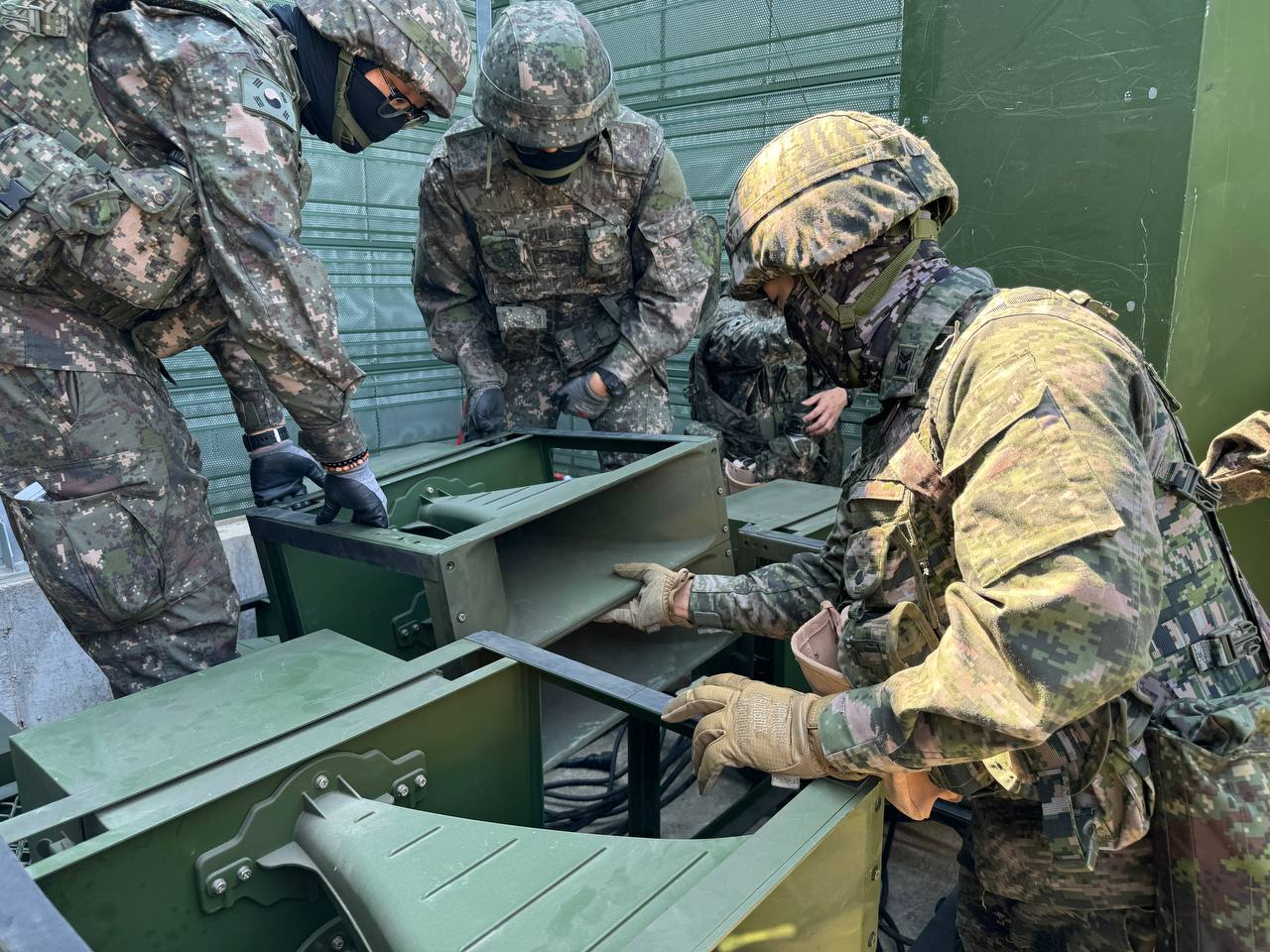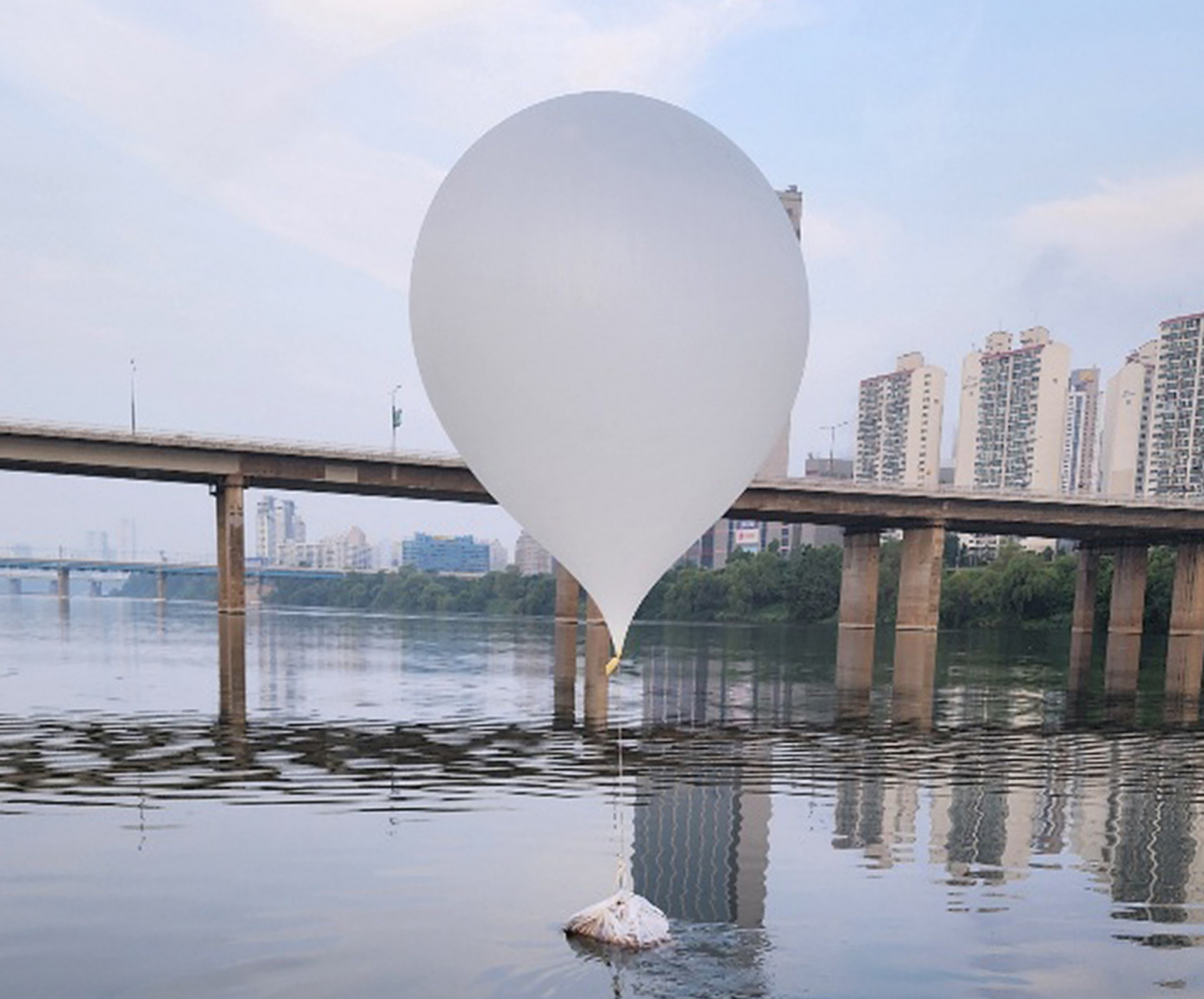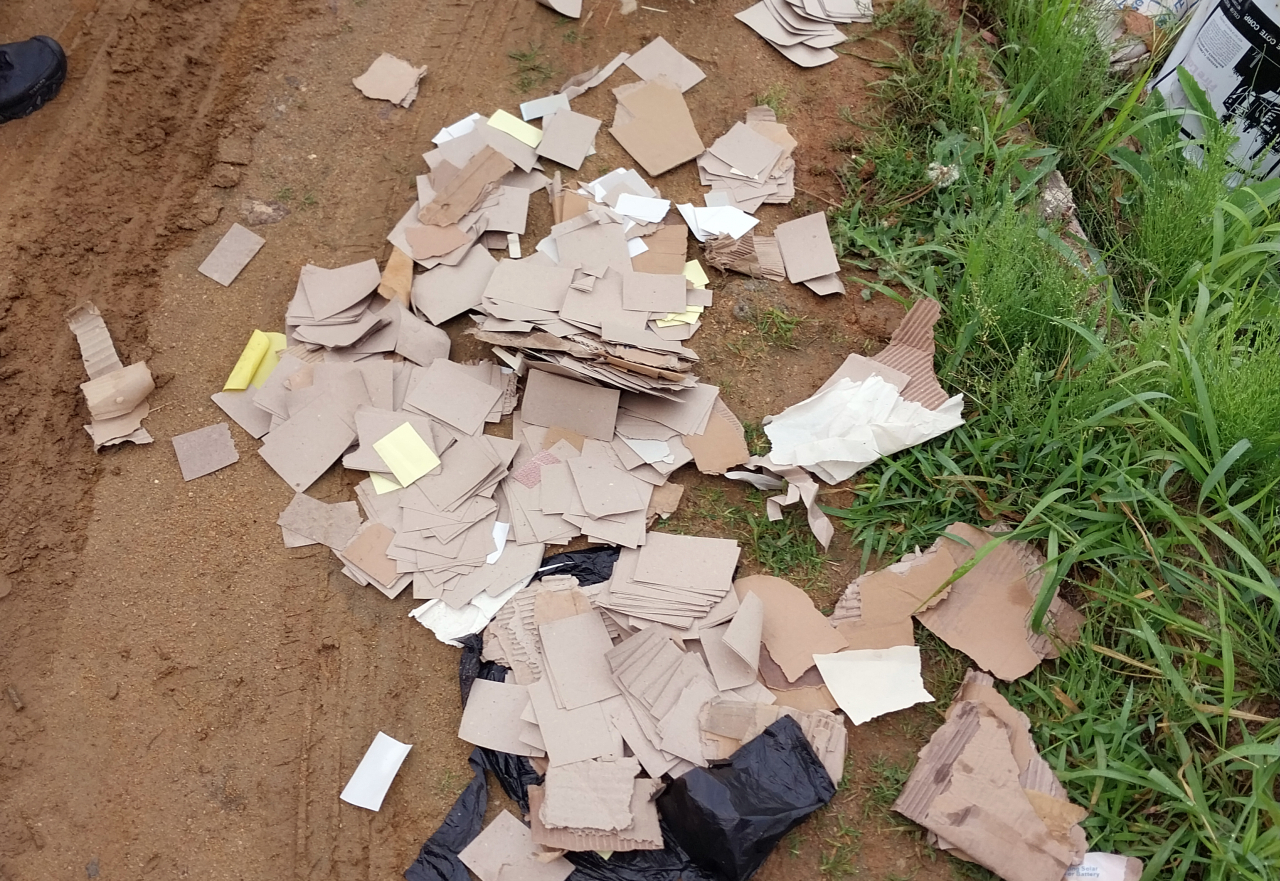
 |
| This photo provided by South Korea’s Joint Chiefs of Staff on Sunday shows loudspeakers being moved and installed along the inter-Korean border during a recent “Echo of Freedom” exercise. (Joint Chiefs of Staff via Yonhap) |
South Korea resumed loudspeaker broadcasts into North Korea on Sunday, in response to North Korea's launches of trash-laden balloons into South Korean territory over the weekend, the Joint Chiefs of Staff confirmed.
Despite warnings of retaliation from Seoul, North Korea flew 330 additional balloons loaded with trash from late Saturday until 10 a.m. Sunday morning, apparently in response to activists' launches of leaflet-carrying balloons headed the other way.
"Our military conducted loudspeaker broadcasts this afternoon, as warned in response to North Korea's launch of trash-filled balloons," the JCS said Sunday in a statement.
"Whether to conduct additional loudspeaker broadcasts toward North Korea will depend entirely on North Korea's actions."
The decision to resume broadcasts was made at an emergency meeting of the presidential National Security Council's standing committee, convened by National Security Adviser Chang Ho-jin on Sunday.
“Although the measures we are taking may be difficult for the North Korean regime to endure, they will deliver messages of light and hope to the North Korean military and citizens,” said the presidential office in a press release.
“We make it clear that the responsibility for any escalation of tension between the two Koreas will lie entirely with North Korea.”
A senior presidential official, on condition of anonymity, explained the reason for resuming the loudspeaker broadcasts to North Korea. "Even if the contents of the trash-filled balloons are not lethal, they can have a psychological impact on the public, so we determined that a strong response was necessary."
Following the first emergency meeting on North Korea's launch of trash-filled balloons from May 28 to June 2 and GPS interference near the inter-Korean border, Chang said June 2 that South Korea would take "unendurable measures" should the launches continue.
 |
| A balloon carrying trash from North Korea is found floating on the Han River near Jamsil Bridge on Sunday morning. (Joint Chiefs of Staff via Yonhap) |
South Korea has been preparing to resume loudspeaker broadcasts since the Yoon Suk Yeol administration suspended the effectiveness of the Sept. 19 inter-Korean military agreement of 2018 on June 4, a necessary prerequisite for this action.
South Korea's JCS on Sunday disclosed that the military recently conducted a drill to prepare for loudspeaker broadcasts for the first time since 2018, when the two Koreas committed to ceasing all hostile acts, including loudspeaker broadcasting, along the Military Demarcation Line as part of the Panmunjom Declaration.
"During the Echo of Freedom exercise, our military thoroughly inspected all equipment and practiced deployment procedures under realistic scenarios to inform North Korean soldiers and residents about the reality of North Korea, the development of the Republic of Korea, and K-culture," the JCS said in a separate statement, referring to South Korea by its official name.
As a result of the drill, the JCS confirmed that the South Korean military was capable of carrying out immediate actions within hours if necessary.
Fixed loudspeakers for broadcasting to North Korea were once installed in 24 locations in the frontline area, and 16 mobile units were also available. However, following the Panmunjom Declaration and the Sept. 19 Military Agreement, the fixed loudspeakers were dismantled and stored in warehouses, while the mobile units were parked at nearby bases.
Defense Minister Shin Won-sik held a meeting with major commanders to order strong, heightened vigilance and a firm response toward the North's possible provocations after the NSC's decision to resume loudspeaker broadcasts.
"Remember that the most important responsibility of our armed forces is to maintain unwavering readiness," said Shin during the meeting. "It is crucial to make sure our military's physical and mental preparedness is up to par."
 |
| Wastepaper from North Korea’s trash-filled balloon is found scattered on the ground in Incheon, Sunday. (Incheon Fire Department via Yonhap) |
Out of the 300 additional balloons launched over the weekend, 80 of them were found to have landed on South Korean territory -- mainly in Seoul and in the northern sections of Gyeonggi Province and Gangwon Province -- containing trash such as wastepaper and plastic bags, with the rest presumed to have landed in the sea or in North Korean territory.
According to the JCS on Sunday, several balloons were also spotted floating over the East Sea, with a few more presumed to have landed in North Korea or other inaccessible mountainous and marine areas. No substances posing a safety hazard were found.
North Korea has been sending trash-filled balloons to South Korea since May 28, characterizing it as a retaliatory measure in response to South Korean civic groups scattering anti-North Korean leaflets via balloons near the border.
On June 2, North Korea announced it would suspend the balloon launches, with the condition that the civic groups' launches stop as well. Concurrently, North Korea also warned that it would retaliate by significantly increasing the scattering of wastepaper and rubbish, amounting to a hundred times the quantity of leaflets and incidents initiated by the South Korean side, should the groups continue.
Following South Korean civic groups' latest balloon campaign from Thursday to Friday, North Korea resumed its launches.









